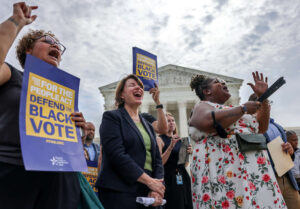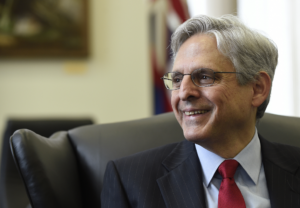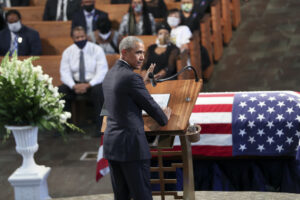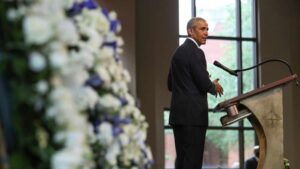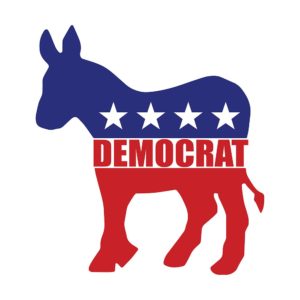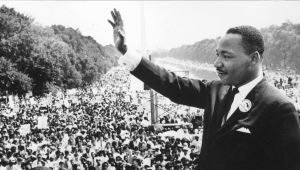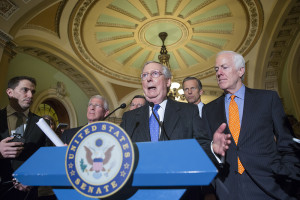
Mitch McConnell has more than just two sides of his mouth through which he utters nonsense that contradicts earlier statements.
The Senate Republican leader once hailed voting rights legislation as quintessentially American. He led a bipartisan effort in 2006 to approve an extension of the Voting Rights Act that passed the Senate in a 98-0 vote.
President George W. Bush, a Republican, signed it into law with McConnell standing there applauding along with the rest of the Senate … and the nation.
These days? It’s a different tune that McConnell is humming. The John Lewis Voting Rights Bill under consideration is a non-starter for Mitch and his GOP caucus. They don’t want to guarantee all Americans easy access to voting. McConnell is now the leading obstructionist who seeks to block this bill from becoming law.
He is fighting efforts to amend the filibuster rule that would “carve out” voting rights from the rule that enables a minority of senators to block legislation. Voting rights needs to pass with a simple majority, say proponents of the change. That includes President Biden.
McConnell, though, seemingly forgets his earlier position. His previous stance was the noble one. His current view is despicable.
